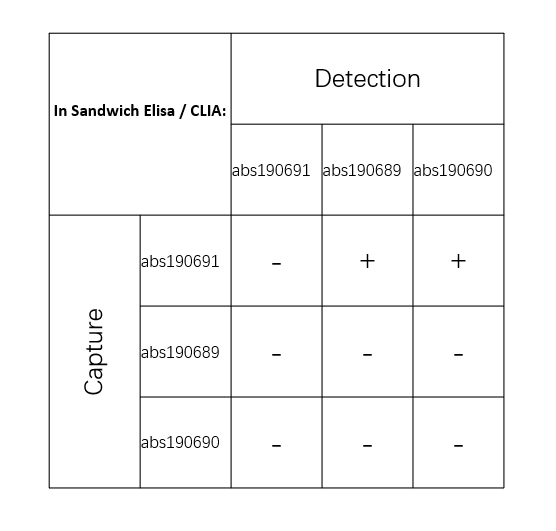Rabbit anti-t-PA Recombinant Monoclonal Antibody(215-4)别名宿主反应种属应用免疫原形式浓度纯化方法类型克隆号储存/保存方法存储溶液背景说明UniProt
| 概述 | |
| 别名 |
Tissue-type plasminogen activator; t-plasminogen activator; tPA
|
| 宿主 |
Rabbit
|
| 反应种属 |
Human
|
| 应用 |
Sandwich ELISA
|
| 免疫原 |
Recombinant protein
|
| 性能 | |
| 形式 |
Liquid
|
| 浓度 |
2 mg/ml
|
| 纯化方法 |
Protein A affinity column
|
| 类型 |
Monoclonal Antibody
|
| 克隆号 |
215-4
|
| 储存/保存方法 |
Store at 2 to 8℃ for one year.
|
| 存储溶液 |
PBS, pH 7.4, 0.03% Proclin 300
|
| 靶标 | |
| 背景说明 |
Tissue plasminogen activator (abbreviated tPA or PLAT) is a protein involved in the breakdown of blood clots. It is a serine protease (EC 3.4.21.68) found on endothelial cells, the cells that line the blood vessels. As an enzyme, it catalyzes the conversion of plasminogen to plasmin, the major enzyme responsible for clot breakdown. Human tPA has a molecular weight of ~70 kDa in the single-chain form. tPA can be manufactured using recombinant biotechnology techniques; tPA produced by such means are referred to as recombinant tissue plasminogen activator (rtPA). Specific rtPAs include alteplase, reteplase, and tenecteplase. They are used in clinical medicine to treat embolic or thrombotic stroke. The use of this protein is contraindicated in hemorrhagic stroke and head trauma. The antidote for tPA in case of toxicity is aminocaproic acid. Increased levels of PAI-1 and tPA are associated with increased risk of cardiovascular disease, especially in patients with concomitant insulin resistance. It has been suggested that the tPA/PAI-1 complex would be an even stronger marker for thrombotic events than tPA antigen, and increased levels of tPA/PAI-1 complex were indeed recently shown to predict increased risk for first-ever stroke.
|
| UniProt |
P00750
|
实验结果图

配对表格
